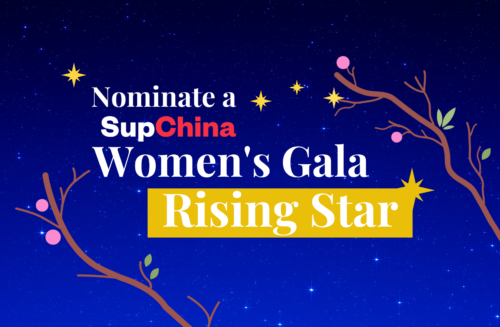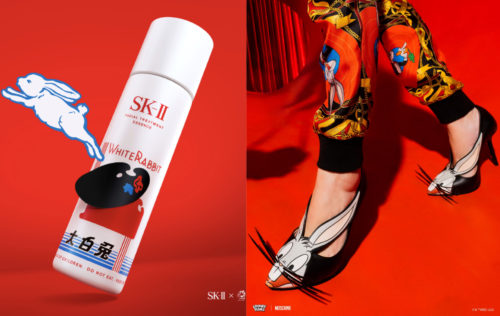Q&A: Fashion entrepreneur Veronica Chou on launching her own apparel brand and her commitment to sustainability
In this interview, Veronica Chou shares with us the mission of her fashion label, how she got interested in sustainability in the first place, and what we can expect next from the sustainable marketplace.

Growing up witnessing polluting apparel production, intrigued by the potential of material science, and affected by the body ideals implanted by the fashion industry, Veronica Chou founded her own eco-innovative, size-inclusive womenswear brand Everybody & Everyone in 2019.
Chou is a major investor in the Karl Lagerfeld brand and has a portfolio of investments in consumer tech companies such as TheTot and Refinery29. She was the president of Iconix China from 2008 to 2015, successfully launching 12 mass market American brands into China and opening over 1,000 stores. Her passion for marrying fashion and sustainability has won her the role of special adviser to the Copenhagen Fashion Summit.
Chou will speak at The China Project’s Women’s Conference 2021, which is slated to take place virtually on May 12 and 13. Get your tickets here before they sell out!
In this interview, Chou shares with us the mission of her fashion label, how she got interested in sustainability in the first place, and what we can expect next from the sustainable marketplace.
This interview has been edited and condensed for clarity.
The China Project: How did you first become interested in sustainability?
Chou: I always start my story with my grandfather, who owned several knitwear and denim factories. I grew up as a child and a teenager going to these factories and asking him questions like “Why is this so dusty?” and “What is this smell with colored water?” Of course, back then, it was just the way things were. Now that I’m in sustainability, it kind of leads me to ask those same questions again. I’m trying to find a better way to make things.
My first business was bringing mass-market American brands to China. From 2008 to 2015, I helped these companies launch up to 1,000 stores in the Chinese market. Although this time in China was great economically and financially, it was also a time of a lot of pollution. I went to not only mega cities like Shanghai, but also second- to third-tier cities. I remember walking off the plane and seeing particles in the air. And I’m like “Oh, my God. What am I breathing?” That’s when I started asking questions about environmental matters and the concept of eco-friendly. Also, personally, I struggled a little bit with food and body image issues. Then I got into healthy food, and from there, organic food and sustainability.
The China Project: What inspired you to launch Everybody & Everyone and how have you grown the company?
Chou: I got into sustainability quite a few years before it became a popular subject around the world. I was lucky when I wanted to get into sustainability because my brothers worked in tech investing. I knew very little about sustainability at that point, and they opened my eyes to the world of material science. So from there, subsequently I’ve invested in a company called Modern Meadow, which specializes in creating clothes in a lab and other green technologies. That made me wonder how I can apply these cool technologies to fashion labels and that’s why I launched my own eco-innovative, size-inclusive womenswear brand.
The China Project: What were your business goals for 2020 and has COVID-19 impacted your ability to achieve them?
Chou: We launched the company in November 2019, right before COVID-19. It’s been challenging to start a new brand so close to COVID. I was trying to open stores last year in New York in the summer, but all these plans were put on hold because of the pandemic.
The China Project: What’s the most challenging part about creating your own eco-friendly brand and how do you tackle that?
Chou: One of the most challenging parts for the brand is that we are sustainable in every way and we are always asking ourselves if we are producing items in the most sustainable way and how we can do better. But this approach comes with a hefty price tag still. From buttons to packaging — even the shoulder pads in our blazers are made sustainably. Also, we want to make sure all the raw materials we use and the factories we work with are also as eco-friendly as possible.
All of this is challenging to put together, but there’s also a cost to everything that is sustainable. I hope that with more people getting into this field, especially multimillion-dollar brands, these prices will eventually come down.
The China Project: Outside your own company, you invest in a wide range of businesses. What are you looking for when it comes to investments? What filters do you apply to screen out investments that would be inconsistent with your principles?
Chou: For myself, besides Everybody & Everyone, I’m also one of the major shareholders for the Karl Lagerfeld brand. I’ve been involved in this brand since 2012. Right now, it is making a lot of changes and trying to be more sustainable. It just launched a new collection of bags made of cactus leather. That’s a really exciting launch.
I’m also an investor in consumer brands and businesses that are sustainable. I definitely believe in using technology and innovation to help us navigate how we should continue to help the world and people live a better life. I think there’s still this goal of getting more people out of poverty, but in doing that, we need to make sure that we don’t deplete the resources on our planet. One way to achieve that is using technology and innovation to improve the way we make things. Like now jeans can be made with much less water. We can dye clothes without using petrol-oil-based dyes. There’s a lot of technologies coming out and hopefully one day we will find a replacement for plastic.
In terms of my investments, I also have been invested in companies that capture carbon dioxide and put it back into the air and those that take waste and change it into jet fuel. There’s a lot of innovative businesses that I am excited about out of fashion as well.
The China Project: In your experience, do people seek out Everybody & Everyone products because they are produced ethically and sustainably? How much of a factor is sustainability to fashion lovers when it comes to purchasing and brand loyalty? What is the industry’s role in creating that kind of demand?
Chou: Before COVID, we saw older generations being less interested in sustainability. But with COVID, I feel that people now care a lot more about sustainability than they did before, which is an absolutely great thing. In the future, most brands need to be purposeful. I personally hope that sustainability will be a given for everything. That’s like my ideal dream.
The fashion industry has managed to push a lot of brands to become sustainable. Four or five years ago, when I talked to some friends and designers in the industry about sustainability and other charitable causes, they turned away immediately from me. I had a few encounters like this back then. And now, they are trying to do something. So I think the industry and the media within the industry have been great to push this forward.
The China Project: Are there any businesses you look up to or aspire to emulate when it comes to sustainability initiatives?
Chou: One company that I really look up to is Patagonia. What’s so amazing about it is that it always has a repair side of things and it wants its products to be long-lasting. It also has a division where it makes movies and documentaries about the environment every year. It also uses its power as a brand to lobby the government to make more changes. That’s really admirable.
The China Project: Do you think Chinese consumers are ready to pay more for sustainable products?
Chou: When it comes to China, I feel that many Chinese consumers still don’t know much about sustainable fashion. If they were given the chance, they would care. But right now, they just don’t have enough knowledge.
But I think they will be the fastest to catch up. One, because China is doing a lot of initiatives to be more sustainable and more green, especially on the energy side. Despite its estranged relationship with the U.S., both countries seem willing to collaborate and do more on the climate front. Two, I know that in China, the government is pushing the agenda. Once the government is pushing it, it will have an impact on everyday people. Also, there are some sustainable fashion brands in China already. With all these things going on, sustainability awareness will continue to grow among Chinese consumers.





